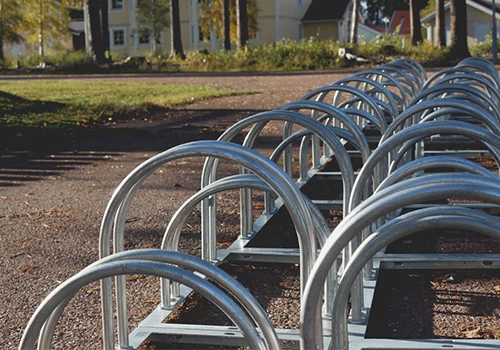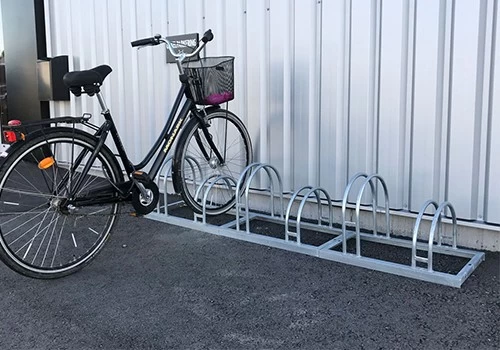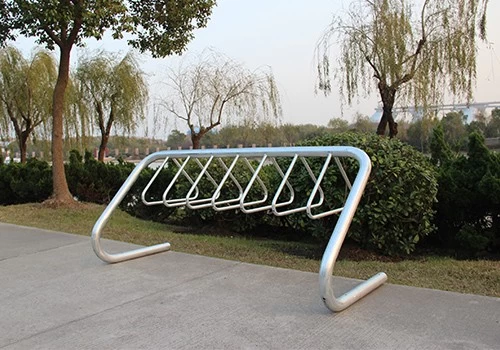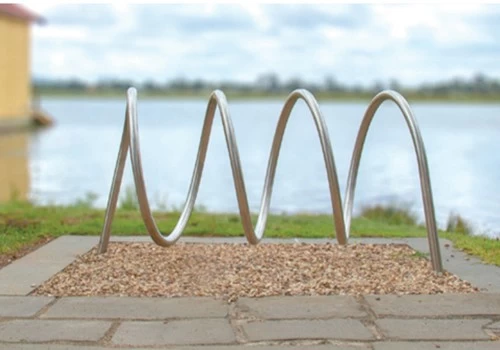Specifications
Model Number : PV-SC-001
Type: Bike parking and storage
Color:Yellow,Black,Green,Red,or Customized.
Style : both indoors and outside
Material : carbon steel
Loading: According to customer need
Size :195*23.2*75cm,200.55*23.2*75cm,or Customized.
Finish: hot-galvanized
Specifications
Model Number : PV-0081-01
Type: Bike parking and storage
Color:silver
Style : both indoors and outside
Material : carbon steel
Loading: According to customer need
Size :Height 1463mm, Depth 1114mm
Finish: hot-galvanized
Model Number : PV-0081-01
Type: Bike parking and storage
Color:Black
Style : both indoors and outside
Material : carbon steel
Loading: 2-10 bikes (According to customer need)
Size :Height 1463mm, Depth 1114mm
Finish: hot-galvanized
Model No.: PV-H1
Size: w605*D400*H330mm
Specification: Round tube:¢16*1.2mm
Finish: Power coated
Net Weight: 1.6 kgs
Packing size:6pcs/ctn
MOQ: 100pcs
Model Number : PV-0024-01
Material : carbon steel/stainless steel
Loading: according customer space size,we can design according the size
Size : W1977*D1130(depend on your parking space)*H2500mm
Finish: Powder coated ,hot-galvanized/electric polish
Packing size :2000*2000*2500mm(40 parking space )
Powder coated ,hot-galvanized/electric polish
Product number:PV-0046-01
Material:carbon steel
Specification:10.2*59*28CM or Customized.
MOQ:100PCS
Port:Shanghai
Trademark:PV
Model Number : PV-0081-01
Type: Outdoor Bike Parking Rack
Style : both indoors and outside
Material : carbon steel
Loading: 2-10 bikes (According to customer need)
Size :170.5*116*148CM
Finish: hot-galvanized
Model Number : PV-0055-01
Type: compact flat pack /slot
Color:black / silver /yellow/optional
Style :Outdoor/indoor
Material : carbon steel/ stainless steel
Capacity : park 6 bikes
Size : L1400*W1054*H840mm
Net weight :38KG
Finish: powder coating / hot galvanized /elctropolishing
Packing size :1490*860*160mm 1pcs/ctn
Product Name: Multi-Capacity Horizontal Two Tier Bike Parking Rack
Material: Carbon Steel
Finish: Powder coated
Post: 80mm * 80mm thickness: 3mm
Steel plate: thickness: 2mm
Dimension: 1325*1890*1830mm
Weight: 370 kg/set
Model: PV-0067-01
Material: stainless steel 304
Pipe: 50 mm* 2.5 mm
Size: 900*700 mm(L*W)
Surface treatment: polishing

In the modern urban landscape, the bicycle has emerged as a powerful solution to numerous challenges faced by cities and businesses. From alleviating traffic congestion to promoting a healthier lifestyle and reducing carbon emissions, the benefits of cycling are manifold. However, the full potential of cycling as a mode of transportation can only be realized if one crucial aspect is addressed: secure bike parking. For a bike rack manufacturer, understanding and communicating the importance of secure bike parking is not just a business necessity but a contribution to the broader goals of sustainable urban development and economic vitality. This article delves into the multifaceted reasons why secure bike parking is essential for cities and businesses, exploring its impact on transportation, the economy, public health, and the environment.
Cycling is experiencing a resurgence in popularity across the globe. Cities are increasingly investing in cycling infrastructure, such as dedicated bike lanes and shared bike programs, to encourage more people to choose bicycles over cars. The reasons behind this trend are varied and compelling. For individuals, cycling offers an affordable, efficient, and healthy way to get around. It provides a convenient means of transportation for short to medium distances, often faster than driving during peak traffic hours. Moreover, cycling is an excellent form of exercise, contributing to improved cardiovascular health, muscle strength, and mental well-being.
From a broader perspective, the rise of cycling aligns with global efforts to combat climate change and create more sustainable urban environments. Bicycles produce zero emissions, making them a green alternative to fossil fuel-powered vehicles. As cities strive to meet environmental targets and reduce their carbon footprints, promoting cycling as a viable transportation option is a logical and necessary step.
However, despite the growing enthusiasm for cycling, many potential cyclists are still hesitant to make the switch. One of the primary concerns that deter people from using bicycles more frequently is the lack of secure and convenient bike parking facilities. Without a reliable place to lock up their bikes, cyclists worry about theft, vandalism, and the overall safety of their valuable possessions. This concern is not unfounded, as bike theft remains a significant problem in many urban areas. According to various studies and reports, a substantial number of bicycles are stolen each year, leading to financial losses for individuals and discouraging others from adopting cycling as a regular mode of transportation.

Secure bike parking plays a pivotal role in addressing the safety concerns of cyclists. When people feel confident that their bicycles will be safe while they are at work, shopping, or attending events, they are more likely to choose to cycle. Well-designed and well-located bike parking facilities can significantly enhance the perceived convenience of cycling. For instance, providing ample bike parking at transit hubs, such as train stations and bus terminals, makes it easier for commuters to combine cycling with public transportation. This integration is crucial for creating a seamless and efficient multimodal transportation system.
Investing in secure bike parking is an integral part of developing comprehensive cycling infrastructure. Just as roads and bridges are essential for motor vehicles, reliable bike parking facilities are necessary to support the growing number of cyclists. Cities that prioritize secure bike parking send a clear message that cycling is a valued and supported mode of transportation. This, in turn, encourages further investment in cycling infrastructure, such as bike lanes, traffic signals, and signage, creating a virtuous cycle of growth and development.
Secure bike parking has the potential to attract a more diverse group of cyclists. While some people may already be avid cyclists, others may be more inclined to try cycling if they know their bikes will be safe. This includes women, older adults, and those who may have previously felt discouraged by the risk of theft. By catering to a broader audience, cities and businesses can tap into the full potential of cycling as a sustainable and inclusive transportation option.
Secure bike parking can have a positive impact on local economies. When cyclists feel safe parking their bikes near businesses, they are more likely to visit shops, restaurants, and other establishments. Studies have shown that cyclists tend to spend more money per month at local businesses compared to drivers. This is partly because cyclists are more likely to make multiple trips to different locations, rather than driving to a single destination and parking for an extended period. Additionally, the reduced need for large parking lots and the associated infrastructure costs can free up valuable urban space for other economic activities, such as new businesses or public amenities.
Areas with well-developed cycling infrastructure and secure bike parking tend to have higher property values. Real estate buyers and renters are increasingly looking for neighborhoods that offer a high quality of life, including easy access to sustainable transportation options. Secure bike parking facilities can be a selling point for both residential and commercial properties, making them more attractive to potential buyers and tenants.
By encouraging more people to cycle, secure bike parking contributes to reducing traffic congestion on the roads. Fewer cars on the streets mean less wear and tear on infrastructure, lower maintenance costs, and reduced need for expensive road expansions. In the long run, this can lead to significant savings for cities and municipalities. Additionally, the reduction in traffic congestion can improve air quality, enhance public health, and create a more pleasant urban environment for residents and visitors alike.

For businesses, providing secure bike parking can be a valuable employee benefit. In today’s competitive job market, companies are constantly looking for ways to attract and retain top talent. Offering secure bike parking facilities can be an attractive perk for employees who value a healthy and sustainable lifestyle. It can also contribute to a positive workplace culture that promotes wellness and environmental responsibility.
Secure bike parking can enhance the overall customer experience for businesses. When customers feel safe and confident about parking their bikes, they are more likely to visit and spend time at a business. This is particularly important for businesses located in urban areas where parking space is limited and expensive. By providing a convenient and secure bike parking option, businesses can differentiate themselves from competitors and attract a wider customer base.
From an operational perspective, secure bike parking can help businesses reduce costs associated with providing parking for employees and customers. Traditional car parking facilities require significant space and infrastructure, which can be costly to maintain and operate. In contrast, bike parking facilities are relatively inexpensive to install and maintain. By encouraging more employees and customers to cycle, businesses can reduce the demand for car parking spaces, freeing up valuable real estate for other uses.

One of the most significant environmental benefits of secure bike parking is its contribution to reducing carbon emissions. By encouraging more people to cycle instead of driving, cities and businesses can play a crucial role in combating climate change. Bicycles produce zero emissions during operation, making them a clean and sustainable transportation option. Secure bike parking facilities help to overcome one of the main barriers to cycling adoption, thereby increasing the number of people who choose to cycle regularly. This can lead to a measurable reduction in greenhouse gas emissions, helping cities to meet their environmental targets and create a more sustainable future.
Secure bike parking can also have a positive impact on biodiversity and the preservation of green spaces in urban areas. By reducing the need for large parking lots and infrastructure, cities can allocate more space to parks, gardens, and other green areas. These green spaces not only provide habitats for wildlife but also contribute to improved air quality, reduced urban heat island effect, and enhanced overall quality of life for residents. Encouraging cycling through secure bike parking facilities can thus create a more harmonious relationship between urban development and the natural environment.
Secure bike parking plays a vital role in promoting physical activity among urban populations. Regular cycling is an excellent form of exercise that can help to prevent a wide range of chronic diseases, including obesity, diabetes, and heart disease. By making it easier and safer for people to cycle, secure bike parking facilities encourage more individuals to incorporate physical activity into their daily routines. This can lead to improved public health outcomes and reduced healthcare costs for society as a whole.
Cycling is an accessible and affordable mode of transportation that can benefit people from all walks of life. Secure bike parking facilities can help to foster social inclusion by providing equal access to transportation opportunities. This is particularly important for low-income individuals, students, and others who may not have access to a car. By ensuring that bike parking is safe and convenient, cities and businesses can support a more inclusive and equitable society.
Secure bike parking can also enhance community connectivity by making it easier for people to travel within and between neighborhoods. When people feel safe parking their bikes, they are more likely to visit local parks, community centers, and cultural events. This can help to build a sense of community and strengthen social bonds among residents. Additionally, cycling can be a fun and enjoyable way to explore the city, promoting a greater appreciation for local neighborhoods and landmarks.
The location of bike parking facilities is crucial for their effectiveness. Bike racks should be placed in highly visible and accessible locations, such as near entrances to buildings, transit hubs, and popular destinations. This not only makes it convenient for cyclists to park their bikes but also deters potential thieves who prefer secluded areas. Additionally, bike parking facilities should be well-lit and monitored, either through surveillance cameras or staff presence, to enhance security.
The quality and durability of bike racks are essential factors in ensuring secure bike parking. Well-designed and sturdy bike racks can withstand attempts at theft and vandalism. They should be made from high-quality materials, such as steel or reinforced concrete, and be securely anchored to the ground. Bike racks should also be designed to accommodate different types of bicycles, including those with various frame sizes and styles.
As cycling continues to grow in popularity, it is important to provide adequate space and capacity for bike parking facilities. Cities and businesses should plan for future growth and ensure that there are enough bike racks to meet demand. This may involve installing multiple bike racks in strategic locations or creating larger bike parking areas, such as bike corrals or dedicated bike parking structures.
Effective bike parking facilities should be integrated with other transportation modes to create a seamless and convenient experience for users. This includes providing easy access to public transportation, such as bus stops and train stations, as well as ensuring compatibility with other cycling infrastructure, such as bike lanes and shared bike programs. By creating a cohesive transportation network, cities and businesses can encourage more people to choose cycling as part of their daily commute or travel routine.
One of the most significant challenges associated with bike parking is the risk of theft and vandalism. While no bike parking facility can guarantee complete immunity from these risks, there are several measures that can be taken to minimize them. In addition to choosing high-quality and durable bike racks, cities and businesses can invest in advanced security features, such as surveillance cameras, alarm systems, and secure bike lockers. Educating cyclists on how to properly secure their bikes and use high-quality locks can also help to reduce the risk of theft.
Another common concern is the limited availability of space for bike parking facilities, especially in densely populated urban areas. However, there are creative solutions to this challenge. For example, vertical bike racks can be installed to maximize the use of vertical space, while folding bike racks can be designed to fit into tight corners or against walls. Additionally, businesses and property owners can consider utilizing underutilized spaces, such as alleys or rooftops, for bike parking.
Ensuring the ongoing maintenance and upkeep of bike parking facilities is essential for their long-term effectiveness. Regular inspections should be conducted to check for damage, wear, and tear, and any necessary repairs should be made promptly. Keeping bike parking areas clean and free of debris can also help to create a more welcoming and secure environment for cyclists.
Secure bike parking is not just a convenience; it is an essential component of sustainable urban development and economic vitality. For cities, secure bike parking can help to reduce traffic congestion, enhance public health, promote environmental sustainability, and boost local economies. For businesses, it can attract and retain employees, enhance customer experience, and reduce operational costs. By addressing the safety concerns of cyclists and providing convenient and reliable bike parking facilities, cities and businesses can encourage more people to choose cycling as a regular mode of transportation. As a bike rack manufacturer, promoting the importance of secure bike parking is not only a business opportunity but a chance to contribute to a healthier, more sustainable, and more inclusive urban future. Through innovative design, quality manufacturing, and effective collaboration with cities and businesses, we can play a vital role in creating a world where cycling is a safe, convenient, and preferred choice for all.